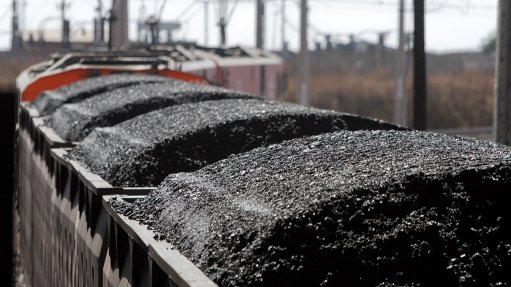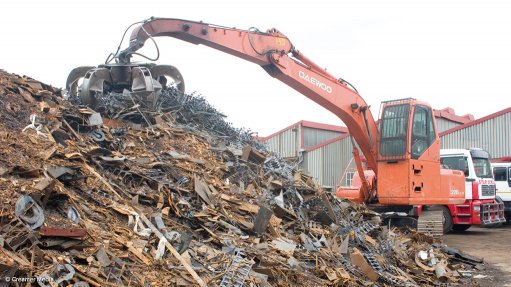SMEs need energy solution, transport infrastructure and industry development
Rescuing the small and medium-sized enterprises (SMEs) sector requires fundamental and large-scale interventions aimed at addressing their specific problems, including the energy crisis, the need for transport infrastructure and the need for supportive policy.
Arguably, the most immediate concern for South Africa’s SME sector is the impact of the worsening energy crisis, says small business financier Business Partners chief investment officer Jeremy Lang.
In the recent State of the Nation Address, President Cyril Ramaphosa indicated that State-level measures to help small businesses install solar power and energy-saving devices will be rolled out including through the adjustment of the bounce-back loan scheme.
“Bringing SMEs into the supply chain for alternative, renewable sources of energy that will relieve pressure on the grid is one way in which government can boost the sector. Involving small businesses in the process of building an energy secure nation will also be a step in the right direction,” says Lang.
The struggle of local small businesses against rising inflation and interest rates, petrol hikes and stage 6 loadshedding has been well-documented, with many businesses shutting their doors in 2022, he notes.
During the 2022 Budget speech, Finance Minister Enoch Godongwana announced the launch of a government-initiated bounce-back scheme, which is a mechanism to offer financial support to businesses impacted by Covid-19.
However, of the R15-billion that was to be deployed, only R140-million in loans had been approved, with only R77-million disbursed by late 2022.
The discouragingly low approval rate and uptake are a testament to the far-reaching impact of the multi-layered economic decline that has undermined any progress towards post-pandemic recovery, Lang points out.
Also in 2022, Godongwana committed R17.5-billion to the launch of infrastructure catalytic projects.
“While good examples of planning have been seen in provinces such as KwaZulu-Natal, a more targeted approach to dealing with obstacles that are the most imperative to the growth of small businesses is needed,” he said.
Rehabilitating and expanding the reach of the country’s urban rail network is a much-needed solution to more efficient public transport, he highlights.
Additionally, initiatives such as the African Continental Free Trade Area are effective in principle, but not in terms of practicality, given the poor state of South African rails and roads, he notes.
During this year’s National Budget Speech, on February 22, government should detail plans to bolster the growth of the SME sector and encourage entrepreneurial activity through tax breaks and incentives, Lang says.
“Currently, SMEs qualifying as Small Business Corporations are exempt from paying income tax on the first R91 250 of their taxable income. This exemption, although renewed every year to account for inflationary pressures is not being increased at a rate high enough to make the difference that is needed for small businesses to regain ground in a way that is impactful and sustainable,” he highlights.
This is a challenge that needs to be addressed as a matter of urgency and in tandem with revisions to the current employment tax incentive (ETI), which was increased by 50% to a maximum monthly value of R1 500 in the 2022 Budget Speech, he adds.
“If SMEs are to benefit materially enough to grow their ventures and help alleviate the scourge of youth unemployment, tax incentives that support this objective need to be revised upwards at a rate that exceeds inflation.
“Further interventions could include extending the applicable age bracket of the ETI to 35 and expanding the country’s designated special economic zones to include under-resourced communities in all nine provinces,” Lang notes.
Many local small businesses emerged from the pandemic years last year as cautiously optimistic about the prospects of economic recovery. However, several socioeconomic factors have served to erode business confidence and thwart efforts to rebuild the already struggling SME sector, and there is a growing expectation for urgent government intervention that will offer much-needed relief, he adds.
Comments
Press Office
Announcements
What's On
Subscribe to improve your user experience...
Option 1 (equivalent of R125 a month):
Receive a weekly copy of Creamer Media's Engineering News & Mining Weekly magazine
(print copy for those in South Africa and e-magazine for those outside of South Africa)
Receive daily email newsletters
Access to full search results
Access archive of magazine back copies
Access to Projects in Progress
Access to ONE Research Report of your choice in PDF format
Option 2 (equivalent of R375 a month):
All benefits from Option 1
PLUS
Access to Creamer Media's Research Channel Africa for ALL Research Reports, in PDF format, on various industrial and mining sectors
including Electricity; Water; Energy Transition; Hydrogen; Roads, Rail and Ports; Coal; Gold; Platinum; Battery Metals; etc.
Already a subscriber?
Forgotten your password?
Receive weekly copy of Creamer Media's Engineering News & Mining Weekly magazine (print copy for those in South Africa and e-magazine for those outside of South Africa)
➕
Recieve daily email newsletters
➕
Access to full search results
➕
Access archive of magazine back copies
➕
Access to Projects in Progress
➕
Access to ONE Research Report of your choice in PDF format
RESEARCH CHANNEL AFRICA
R4500 (equivalent of R375 a month)
SUBSCRIBEAll benefits from Option 1
➕
Access to Creamer Media's Research Channel Africa for ALL Research Reports on various industrial and mining sectors, in PDF format, including on:
Electricity
➕
Water
➕
Energy Transition
➕
Hydrogen
➕
Roads, Rail and Ports
➕
Coal
➕
Gold
➕
Platinum
➕
Battery Metals
➕
etc.
Receive all benefits from Option 1 or Option 2 delivered to numerous people at your company
➕
Multiple User names and Passwords for simultaneous log-ins
➕
Intranet integration access to all in your organisation


















